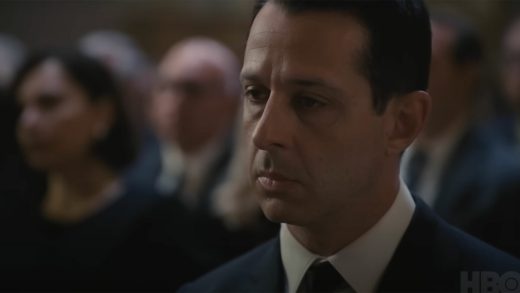On March 27, 2019, US-based author John Van Stry filed a copyright infringement lawsuit against Travis McCrea, the operator of eBook platform eBook.bike.
McCrea initially chose not to become involved in the suit and in June, Van Stry’s lawyers filed for a default judgment in a Texas court.
As reported here earlier this month, the presiding judge chose not to rubber-stamp the request but instead questioned whether the court had personal jurisdiction over McCrea, a Canada resident.
The parties were invited to file simultaneous briefs, indicating whether the alleged injury to the copyright holder occurred in Texas, whether any injury was sufficient enough to imply a “substantial connection” with the forum/state, and whether McCrea knew that “his acts would be felt” by Van Stry in Texas.
This week, Van Stry’s lawyers filed documents with the Court, sent to them by McCrea but yet to be officially filed by the defendant. That will happen in due course, the author’s legal team note. They make for interesting reading.
Representing himself, McCrea writes that his engagement in the case has been limited due to a number of factors including “massive waves of cyber bullying” and direct attacks on his ability to defend himself.
Van Stry previously launched a GoFundMe campaign to raise cash to fight McCrea, an effort that to date has raised more than $23,000. However, when McCrea opened his own fundraiser on the same platform, he says GoFundMe shut it down. In an earlier conversation, he told TF he didn’t know why that had happened.
“Why GoFundMe shut down my fundraiser but allowed his is beyond me,” he told us. “They cited ‘TOS Violations’ yet when I emailed asking for further elaboration they ignored my emails.”
In the documents filed by Van Stry’s team, McCrea informs the Court that “putting food” on the table had prevented him from being as engaged in the case as he would’ve liked but that shouldn’t be perceived as a sign of disrespect.
While acknowledging the motion for default judgment, he asks the Court to consider accepting a late motion to dismiss and a motion for change of venue, to be taken as part of the Court’s request for further information on jurisdiction.
“Regardless of any argument made by the Plaintiff, it is an inarguable fact that the Plaintiff did not file proper takedown notices as required by the Digital Millennium Copyright Act,” the motion reads.
“It is not my intent to argue safe harbor at this moment, but rather the failure of the Plaintiff to even properly file a take-down notice in the first place or provide me with any reasonable notice of the infringement at all (without proper notice, the argument of safe harbor cannot even be entertained. If I am not properly informed of copyright infringement, I cannot reply to said infringement).”
McCrea points out a number of alleged deficiencies in the notices sent by Van Stry but majors on the fact that the DMCA requires takedown notices to contain “information reasonably sufficient to permit the service provider to locate the material.” That usually means the precise URLs at which the content can be found, a detail reportedly missing from Van Stry’s notices.

McCrea points out that one of the notices sent did contain a URL but it related to a search result page that contained no infringing material.
All notices, McCrea states, failed to meet other requirements as set out in law, by not offering “information reasonably sufficient to permit the service provider to contact the complaining party, such as an address, telephone number”, a statement that the complaining party “has a good faith belief that use of the material in the manner complained of is not authorized by the copyright owner, its agent, or the law”, and a statement that the “information in the notification is accurate, and under penalty of perjury, that the complaining party is authorized to act on behalf of the owner of an exclusive right that is allegedly infringed.”
In summary, due to the above McCrea says he has “no case to answer” because the original notices sent to him did not comply with the requirements of the DMCA.
“There are many details about my life in the initial claim and many not flattering, however, I have always shown a commitment to enforce copyright on websites I am involved with,” McCrea continues.
“I advocate change in copyright law, that’s true, but I advocate for copyright terms of 15 years not no copyright. I advocate for change through the law, not against it. Please don’t [allow] the Plaintiff to file a suit because of my religion and political beliefs without having to at least fulfill his legal obligations first.”
Finally, the documents indicate that McCrea will file a request for a change of venue from Texas to Seattle. This would be the closest state for him since he’s a resident of Canada, he adds.
The eBook.bike operator acknowledges that the existence of a motion for default judgment may limit his ability to file these requests but it will nevertheless prove interesting if the Court decides to examine the DMCA notice issue in addition to the matter of jurisdiction.
The related documents can be found here (1,2,3)
Source: TF, for the latest info on copyright, file-sharing, torrent sites and more. We also have VPN reviews, discounts, offers and coupons.
Source : EBook.bike Owner Says Deficient DMCA Notices Means No Case to Answer











